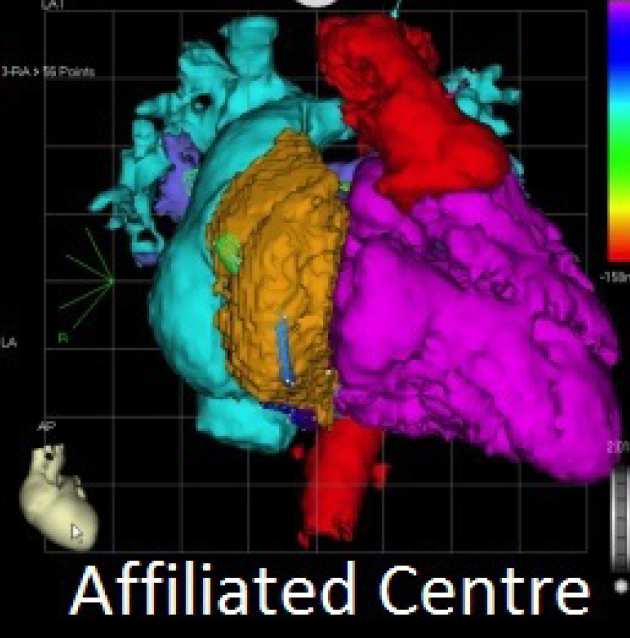Research
Our research expertise covers a wide breadth of technologies and their application in areas of healthcare which together encompass almost the entire spectrum of disease burden afflicting modern society. With over 100 biomedical engineering research groups across Imperial’s departments and faculties, our academic leaders combine the benefits of subject excellence within their host department with the opportunity for multidisciplinary collaboration, centred around clinical application themes from their association with the IBME’s Networks and Research Centres.
The IBME draws upon strong foundations in enabling technologies across the engineering disciplines, such as biomechanics, bionics, biomaterials, tissue engineering, biomedical imaging, bio-nanotechnology, bioinformatics, molecular bioengineering and medical robotics, which are then applied to particular clinical application areas. In this way a truly multidisciplinary approach brings profound new perspectives to understanding disease leading to fundamentally new clinical solutions.
Further detailed description of our research activities by application theme are provided below:
Research Activites
Key academics include:
Anthony Bull, Andrew Amis, Jonathan Jeffers, Justin Cobb, Molly Stevens, Guang-Zhong Yang, Angela Kedgley, Ferdinando Rodriguez Y Baena, Ravi Vaidyanathan, Niamh Nowlan.
Overview:
The centrepiece of Imperial’s research at the interface of engineering and musculoskeletal disorders is the Musculoskeletal Medical Engineering Centre. The MSk MEC brings together researchers from across Imperial College London focussed on the discovery and application of new technologies to improve the understanding, diagnosis and treatment of musculoskeletal disorders, such as osteoarthritis. Core research themes include:
- Musculoskeletal Dynamics
- Implant Design and Testing
- Tissue Engineering and Regenerative Medicine
- Surgical Technology
- Rehabilitation, Sports and Human Performance
Associated centres:

Key academics include:
Simon Schultz, Paul Matthews, Bill Wisden, Paul Chadderton, Adam Hampshire, Claudia Clopath, Dan Goodman, Mauricio Barahona, Martyn Boutelle, Stephen Brickley, Tim Constandinou, Aldo Faisal, Rob Leech, Mark Neil, Richard Reynolds, David Sharp, Richard Syms, Ravi Vaidyanathan.
Overview:
Brain-related illnesses (e.g. Alzheimer’s, stroke and Parkinson’s) affect more than two billion people worldwide and the prevalence is growing, with an increasing impact on healthcare resources. The challenge now is to find ways to reduce this burden on society. The emerging field of neurotechnology seeks to exploit advances in engineering (e.g. computing, electronics, robotics, and imaging) to revolutionise the understanding, diagnosis, treatment and rehabilitation of brain-related disorders. This diverse field encompasses a range of different technology research themes and potential areas of application: Computational modeling & data analysis, Microelectronics, devices & biosensors, Optical & genetic neurotechnology, Neuroprosthetics, and Robotics & human-machine interfaces.
The centrepiece of Imperial’s research at the interface of engineering and neurological disorders is the Centre for Neurotechnology.
Associated centres:


Key academics include:
Rob Krams, Colin Caro, Gianni Angelini, Mauricio Barahona, Nick Cheshire, Paul Evans, David Firmin, Sian Harding, David Klug, Kim Parker, Dudley Pennell, John Pepper, Nicholas Peters, Nadia Rosenthal, Michael Schneider, Dorian Haskard, Molly Stevens, Spencer Sherwin, Peter Weinberg, Yun Xu.
Overview:
The tools and approaches from engineering have long been established as essential to improve the diagnosis, monitoring and treatment of disorders of the cardiovascular system as well as to enhance our understanding of the pathophysiology of cardiovascular disorders. Well known examples include medical devices such as pacemakers and stents, which have saved many thousands of lives across the World. Imperial’s activities in the field bring together researchers in relevant engineering subjects, such as fluidics, mechanobiology, bioelectronics, systems biology, imaging, biomaterials and computing, with cellular and molecular biologists and clinicians from across the faculties of natural sciences and medicine, to enhance understanding and forge ground-breaking new approaches that transform future clinical practice.
Associated centres:

Key academics include:
Tony Cass, Waljit Dhillo, Graham Williams, Chris Toumazou, Pantelis Georgiou, Duncan Bassett, Alex Blakemore, Steve Bloom, Stephen Franks, Philippe Froguel, Desmond Johnston, Danny O'Hare, Nick Oliver.
Overview:
Imperial College has world leading scientists in the fields of diabetes, metabolomics and disease prediction, bioinformatics, sensor technology, molecular endocrinology, fertility and maternal health. The IBME seeks to promote collaboration between biomedical engineers and molecular endocrinologists to accelerate the generation of novel approaches to solve clinical problems with technology. Imperial scientists, engineers and clinicians are working to advance our knowledge of how hormonal and metabolic systems operate normally and how they can malfunction and to develop innovative devices (e.g. artificial pancreas, vagus nerve stimulation), microfluidics systems, biosensors, genotyping technologies and other approaches to therapeutic intervention.
Associated centres:
Key academics include:
George Hanna, Anthony Bull, Mr Shehan Hettiaratchy, Prof (Col) Jon Clasper, Robert Dickinson, Mazdak Ghajari, Spyros Masouros, Tobias Reichenbach, David Sharp.
Overview:
The Trauma Initiative is hosted by Imperial College's Institute of Biomedical Engineering. It represents a cross college programme between the South Kensington Faculties of Engineering and Medicine and the Major Trauma Centre at St. Mary's Hospital. Building on the last ten years of research focused around injuries sustained by military personnel overseas, the mission of the Trauma Initiative has been increased to include civilian trauma. This is a reflection of the need for research into all aspects of civilian trauma and also the setting up of a Major Trauma System in the UK. As a result, many of the lessons learnt from military injuries can be translated into improving the outcomes of those suffering trauma in the civilian environment. Current research is divided into three research themes reflecting the most significant injuries treated at the Major Trauma Centre. Musculoskeletal, Head & Brain and Auditory System.
Associated centres:

Key academics include:
Bob Brown, Charles Coombes, Peter Weinberg, Chris Toumazou, Maggie Dallman, Jimmy Moore, Anthony Bull, Ara Darzi, Jeremy Nicholson, Mustafa Djamgoz, Hani Gabra, Sylvain Ladame, Charlotte Bevan, Martyn Boutelle, Christina Fotopoulou, Emmanuel Drakakis, Piero Posocco, Matt Williams, Armando Del Rio Hernandez, Eric Aboagye, Mengxing Tang, Mary Ryan, Zoltan Takats.
Overview:
The IBME is promoting an expansion in Imperial’s research in cancer engineering by exploiting the College’s combined strengths in engineering and physical sciences and cancer research. Medical technology solutions, such as surgical devices, radiotherapy and imaging, are among the most effective tools in the fight against cancer, despite having historically received only a relatively small proportion of research investment. Imperial’s relevant expertise covers a number of technology themes, including imaging and detection, medical devices & robotics, mathematical, computational & systems approaches, and mechanobiology. It stands to deliver impact across the spectrum of clinical need from improved early diagnosis, to enhanced local therapy, patient profiling and stratification.
Translation
Imperial researchers at the IBME have a strong track record of translating their research to maximise impact, commercially through spin-outs and licenses to patented technologies and know-how, and non-commercially through pioneering improved clinical practice and providing access to software and databases.